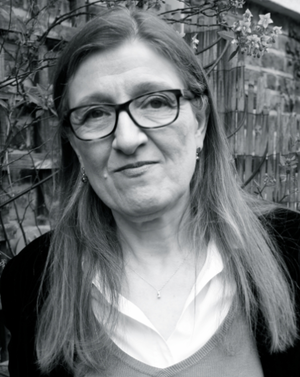Experienced psychotherapist
and counsellor in Oxford
I work with high-achieving and creative people, busy professionals who bring a variety of difficulties and anxieties.
I have experience of working with people who:
- Struggle to identify or express their emotions effectively
- Feel worried about meeting their children's needs
- Are 'workaholic' or have difficulties maintaining 'the work/life balance'
- Lack confidence or a positive sense of themselves
- Struggle in their close relationships or marriage
- Struggle at work
- Feel overwhelmed and anxious
- Feel compelled to overachieve
- Suffer from irritability or anger
- Have difficulty managing multiple demands

Background
I did my clinical training at wpf (formerly Westminster Pastoral Foundation) and have a post-graduate diploma in psychodynamic studies. I was educated at Cambridge University.
I am a member of the FPC (Foundation for Psychotherapy & Counselling) and registered with the UKCP (United Kingdom Council for Psychotherapy). These bodies have codes of ethics.
I am additionally trained in dialectical behaviour therapy, and have worked with people who have been told they have borderline personality disorder or borderline traits, those who have suffered trauma, and those in a state of extreme emotional distress. I am interested in helping people manage their emotional states.
I also interested in offending behaviour and the criminal justice system; mothers and babies (including fear of giving birth and post-natal depression); fathering; and people who, for whatever reason, have been marginalised.
Psychodynamic Psychotherapy
Psychodynamic psychotherapy is a talking cure characterized by attention to 'boundaries'. The therapy is once or twice a week, for 50 minutes, at the same time and place. This can come as an unpleasant reality that can seem absurd in the high-pressure world of, for example, a senior professional.
Psychotherapy is not designed to gratify immediate needs; it is to build a context in which needs can be examined and thought about.
The work of psychotherapy is exploratory, creative and enlightening without being ‘directive’. It aims to shed light on patterns of relating, making links to past experiences, and disentangling the underlying complexities within the context of external reality. It aims to provide insight and understanding by getting to 'the heart of the matter'.
In this way you can begin to move on, make key changes, and find greater fulfilment in relationships, work and recreation. Psychotherapists' work is furnished by a knowledge of theory, a knowledge of case history, their own experience and personal psychotherapy, and acute insight and intuition.
Psychodynamic psychotherapy is designed for regular, once- or twice-weekly sessions of 50 minutes. It is usually ‘open-ended’ in nature. There is no way of knowing at the start how the psychotherapy is going to proceed. However, time-limited counselling is also a possibility for people who have a specific, clear focus for work over twelve or so sessions.
Since the pandemic, it has become very usual for psychotherapy to take place by video link. This makes it easier for busy people to fit it into their week, but there is an absence of personal connection, and the sense of a shared space. I also think that the loss of travelling time before and after a session prevents clients from examining their thoughts and feelings usefully.
Why have therapy?
Psychodynamic psychotherapy is flexible.
Anyone who wants to reflect on life experiences, gain insight, make connections, and think about feelings and emotions can find it helpful.
You might consider counselling if you find you are struggling with any of the following:
- Feelings of hopelessness or futility, being preoccupied with your own inadequacy and worthlessness
- Lack of confidence, not living up to your abilities, being bullied
- Anxiety, not being able to ‘face’ things, fearfulness, panic attacks
- Behavioural difficulties, obsessive or intrusive thoughts, addictiveness
- Problems in relationships, difficulty expressing feelings or empathizing, feeling ‘needy’, feeling others’ needs are too much for you, worries about sex and sexuality
- Irritability, inexplicable or inappropriate anger or aggression
- Painful guilt or shame
- Not caring for yourself properly
You do not by any means need to present a difficulty such as these in order to have therapy.
You might just want help in thinking about your life.
You might feel you are generally unhappy for no apparent reason, or you might be going through a crisis that feels overwhelming or confusing.
Get in touch
Catriona Howatson MA FPC UKCP
Psychodynamic psychotherapist
I am based in central Oxford.
If you are considering having psychotherapy, please get in touch to arrange an initial assessment. This enables us to discuss openly the reasons you are considering therapy, what you are hoping for from it, and whether we should like to work together.
You can ring me on 07740 869525 if you would prefer to leave a message or speak to me first. I am happy to discuss any queries or questions you may have prior to arranging an initial appointment.
©2022 Catriona Howatson
powered by WebHealer
